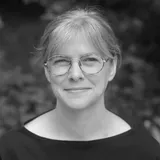Uncertainty is just what it sounds like: not knowing. It’s that state of limbo when you’re waiting to find out if you got the job, if the biopsy is negative, if you’re pregnant or not. It’s not knowing who’s the best candidate or which brand of car is likely to last the longest. It’s also not knowing the answers to those existential questions: Why am I here? How is everything going to turn out?
Most research on uncertainty has focused on its negative aspects, primarily anxiety. However, in the last couple of decades, researchers have begun to probe the potential benefits of uncertainty, explains Jessica Alquist, an experimental psychologist and researcher at Texas Tech University.
Alquist and Roy Baumeister, a social psychologist at Constructor University in Bremen, Germany, took a close look at the body of research in this area and found that learning to love uncertainty — or at least learning to deal with it better — can have some very important advantages. They published their findings this October in the journal Current Directions in Psychological Science.
Loving Uncertainty Can Make You Less Gullible
Studies have found that people who are uncomfortable with uncertainty are more likely to fall for made-up news headlines. Alquist explains that this is likely because having no information is so uncomfortable that it’s easier to just accept bad information.
Alquist describes one experiment in which people were given a list of completely made-up topics and asked how familiar they were with each of them. People who were the most uncomfortable with uncertainty were more likely to say that they were familiar with a bogus topic than those who were comfortable with the unknown.
Perhaps people — and we all know at least one — who act as if they know everything there is to know about any topic might not be show-offs after all. They may just have a very difficult time with uncertainty. Knowing everything — or convincing themselves that they do — may be how they cope with a deep discomfort with uncertainty.
Read More: Seeking Solitude Can Provide Emotional Regulation and Sense of Autonomy
Uncertainty Can Improve Learning
Getting comfortable with uncertainty can do more than protect you from scams. It can actually improve learning. If you’re comfortable with uncertainty, then you’re aware that there are things you don’t know.
And that, says Alquist, “is a tremendous asset. Being able to say, ‘I don't know the answer to this question,’ or ‘I don't know what's going to happen’ can lead us to seek out information.” This makes us better learners and, in the end, may actually reduce uncertainty.
Being able to exist comfortably in the state of not knowing has another big advantage. It can lead us to prepare for the unknown.
“When we're so uncomfortable with uncertainty that we pretend it doesn't exist,” says Alquist, “we're not prepared, we're not seeking information that can help us prepare for multiple possibilities.” Uncertainty, she adds, is a little like pain. “It’s a really good signal for us to do things. It mobilizes us.”
Getting Comfortable with Uncertainty
There are ways to increase your tolerance for uncertainty and gain its benefits. Some of them involve meeting with a trained therapist who can help you gradually and safely expose yourself to uncertain situations. However, there are some things you can safely do on your own (and some of these just might be fun).
Alquist suggests starting small. Are you a hard-core rock fan? Why not give opera a go for once? Or maybe try a new type of cuisine, or a new way of cooking an old favorite. Strike up a conversation with a stranger on the bus.
“These are all situations where we don’t know how things are going to play out,” she says, “whereas if we stay in our house playing games on our phones, we know exactly how that's going to happen, and we're not really teaching ourselves that we can handle unexpected things.”
Read More: Uncertainty is Uncomfortable. Here's How We Can Learn to Live With It
Article Sources
Our writers at Discovermagazine.com use peer-reviewed studies and high-quality sources for our articles, and our editors review for scientific accuracy and editorial standards. Review the sources used below for this article:
Current Directions in Psychological Science. Learning to Love Uncertainty















